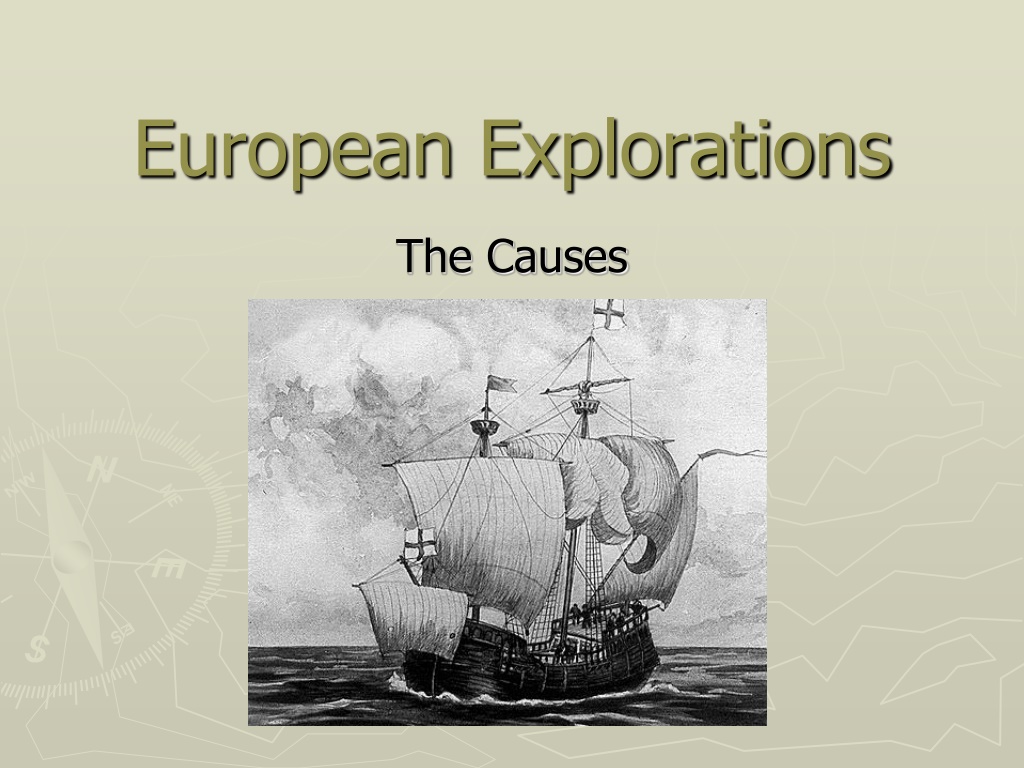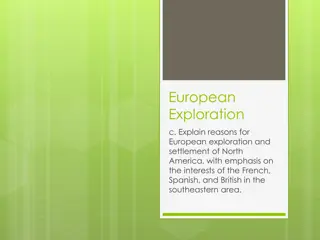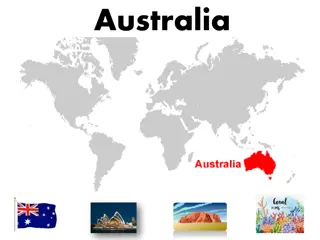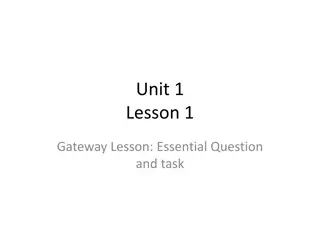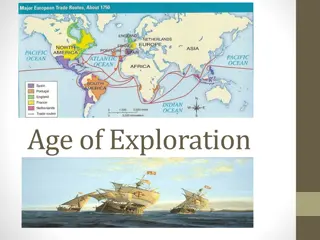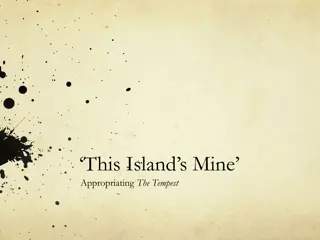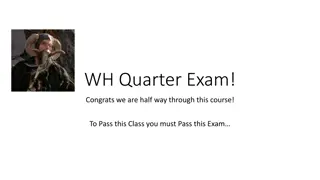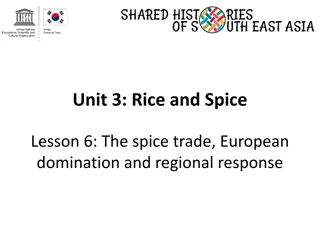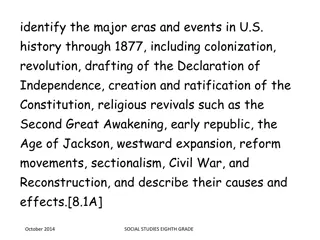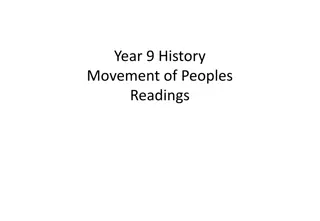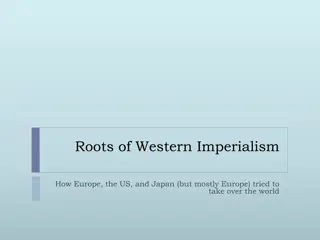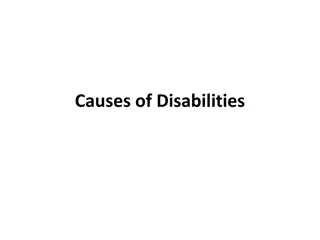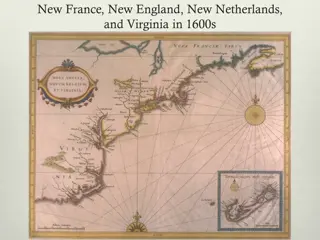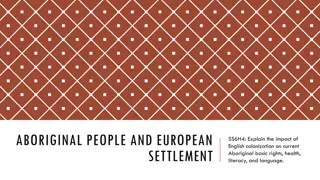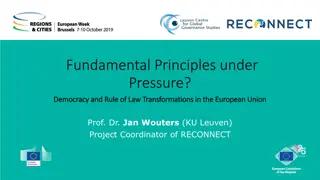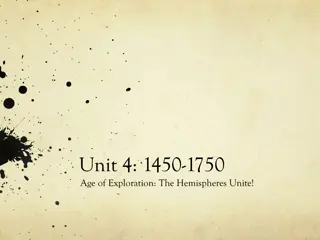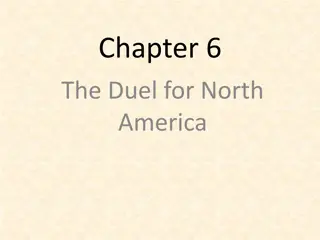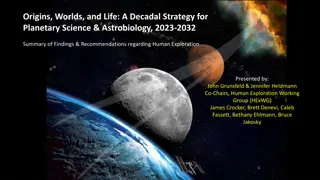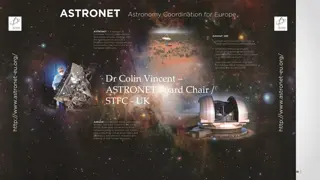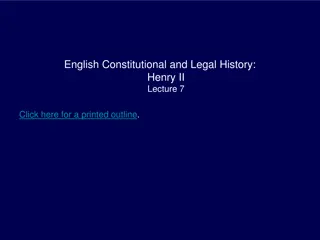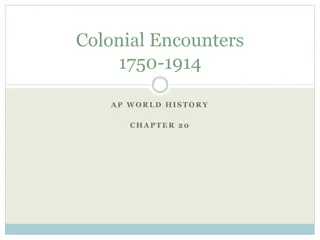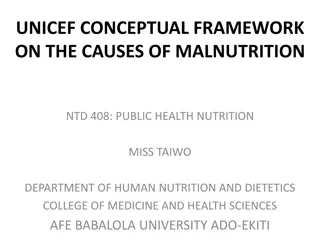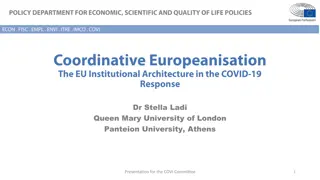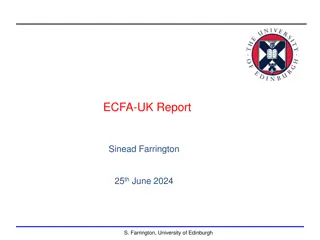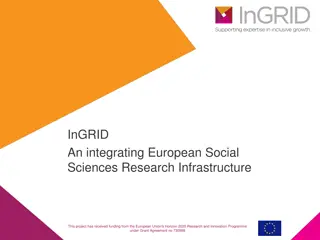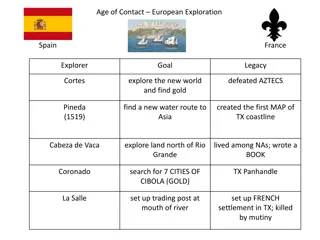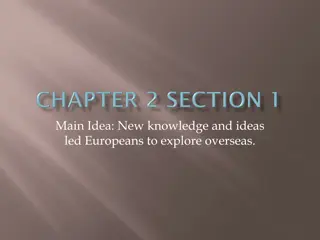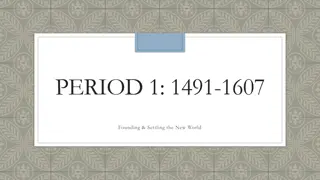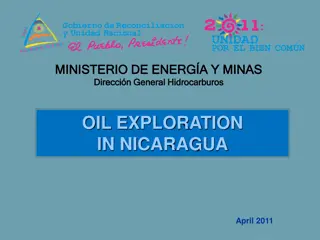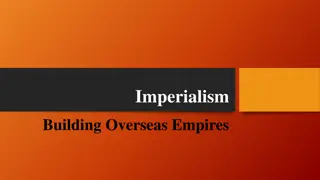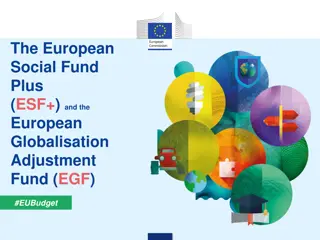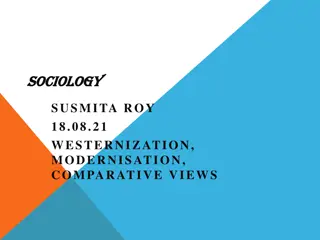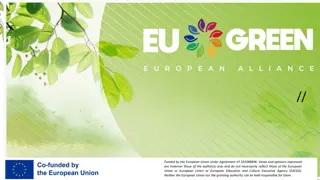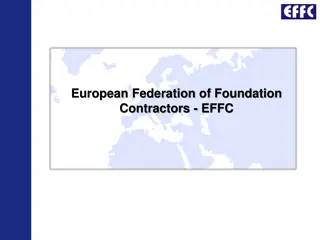Causes and Motivations Behind European Exploration and Colonization
European exploration and colonization in the 15th century were primarily driven by a quest for natural resources, the search for new trade routes to Asia, religious motivations to spread Christianity, and the desire for glory and expansion of territories. Competitions among European countries, such as for gold, silk, and spices, also played a significant role in prompting explorers to embark on famous journeys across the globe.
Download Presentation

Please find below an Image/Link to download the presentation.
The content on the website is provided AS IS for your information and personal use only. It may not be sold, licensed, or shared on other websites without obtaining consent from the author. Download presentation by click this link. If you encounter any issues during the download, it is possible that the publisher has removed the file from their server.
E N D
Presentation Transcript
European Explorations The Causes
Essential Question What were the causes of European exploration and colonization in the 15th century?
Explorations During the Renaissance How/why did the Renaissance give rise to global explorations? Famous journeys were taken by: Ferdinand Magellan, Christopher Columbus, https://www.history.com/topics/exploration/christopher- columbus Amerigo Vespucci (after whom America is named), Marco Polo, Ponce de Leon, Vasco N ez de Balboa, Hernando De Soto and others. Explorers not named Christopher Columbus: https://www.history.com/topics/exploratio n/amerigo-vespucci/videos/history-lists- explorers-not-named-columbus
Gold God Glory 3 Gs
Gold In the 1400s, European countries were competing with each other for Natural Resources. They competed for natural resources such as gold, silk, and spices. Spices were especially valuable. Many of these things could be found in India. Traders had to travel great distances over land to get these natural resources.
Gold and Natural Resources Transporting goods across these great distances was costly. Everyone along the way had to be paid and wanted to earn a profit By the time the spices and goods reached Europe, they had to be sold at extremely high prices.
Gold and Natural Resources European Merchants knew that if they would trade directly with people in Asia, they could make enormous profits. In the 1400s, Europeans began searching for a sea route to Asia.
God Some Europeans believed it was their duty to spread the Christian faith throughout the world. They felt that they could convert the Native people they met in their journeys into Christians.
Glory As Europeans began exploring the Coast of Africa, they began settling Colonies. Colonizing new areas added to a country s territory (more natural resources, more wealth) Colonizing also opened new markets European countries could sell things to the people in these areas and make even more money
Glory The more colonies a country had, the more wealth it had More colonies meant more prestige or Glory Countries began competing with one another for colonies When one Country takes over another it is called imperialism
Prince Henry the Navigator Portugal Prince Henry the Navigator of Portugal began the age of European exploration Prince Henry began Portugal s exploration of Africa in the mid 1400s. He hired sailors who explored the coast of Africa and opened the way for future journeys Image:Henry the Navigator1.jpg
Prince Henry the Navigator Henry also opened a school of Navigation in Portugal He wanted shipbuilders, mapmakers, sea captains, and inventors to learn and work together.
For the next 200 years, Europe s largest countries began exploring Africa, Asia, and North America. They set up Colonies, new markets, and spread Christianity.
